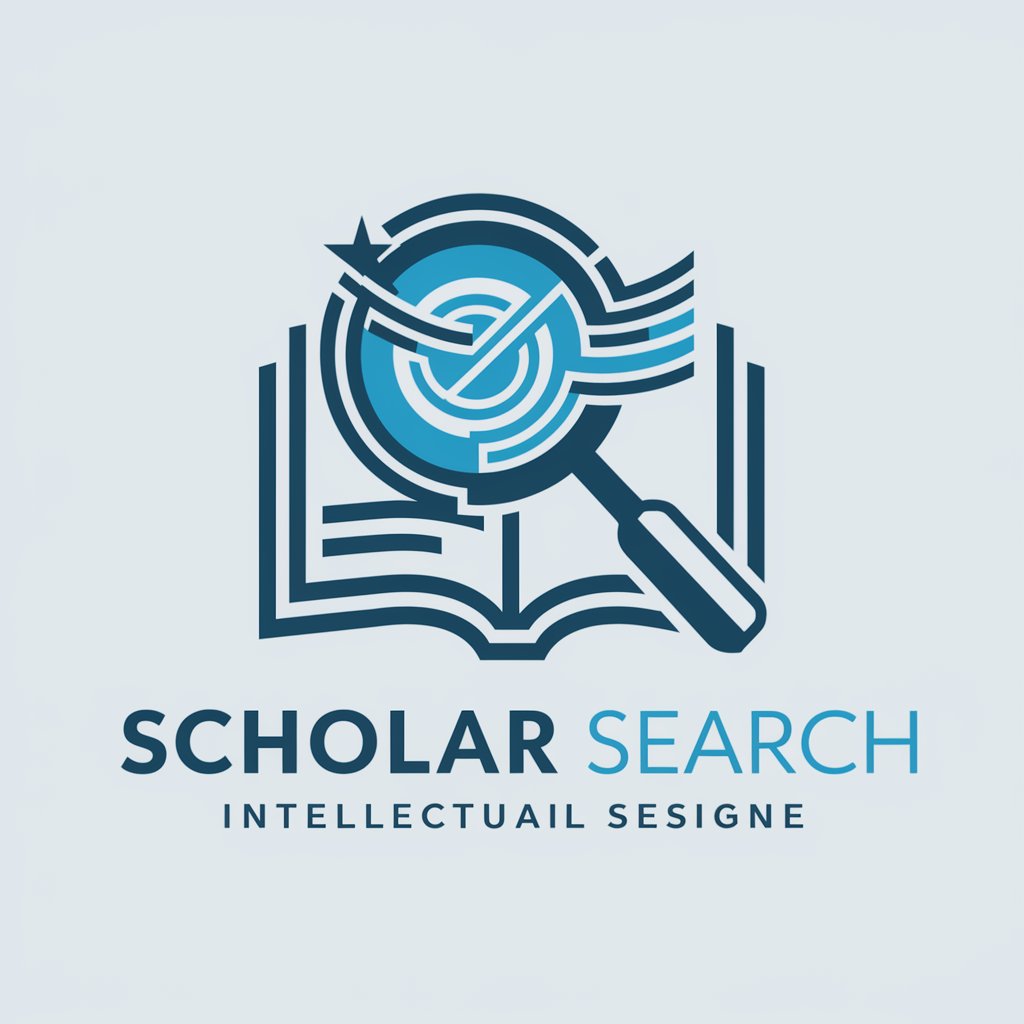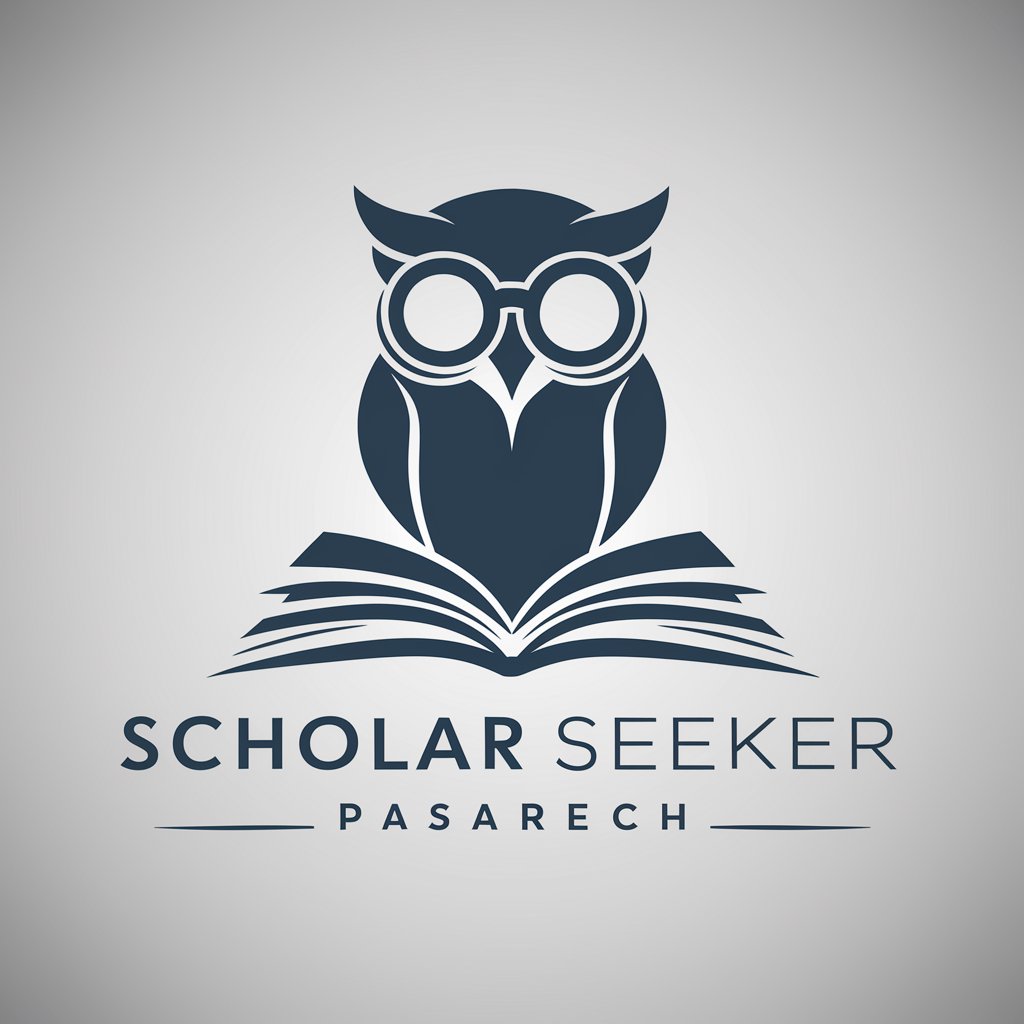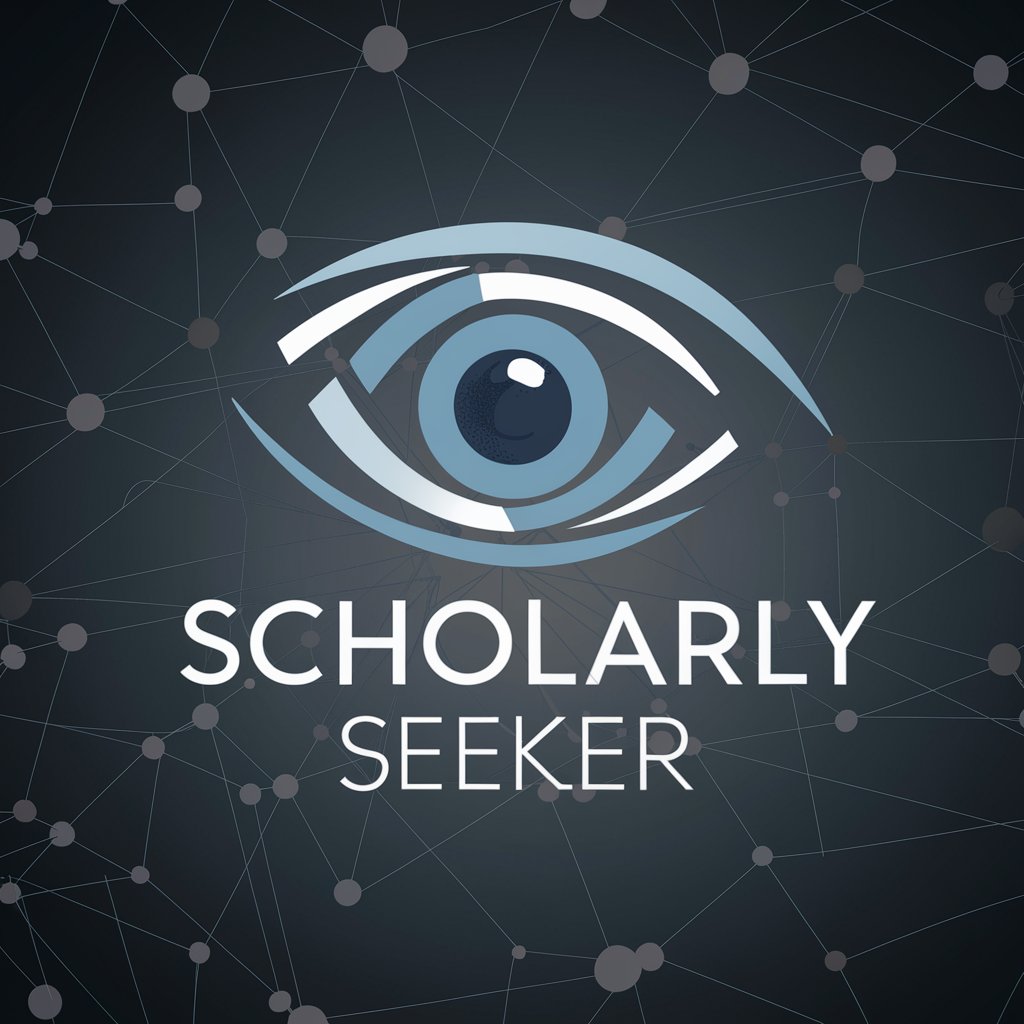
Scholar Search - AI-Powered Scholarly Search
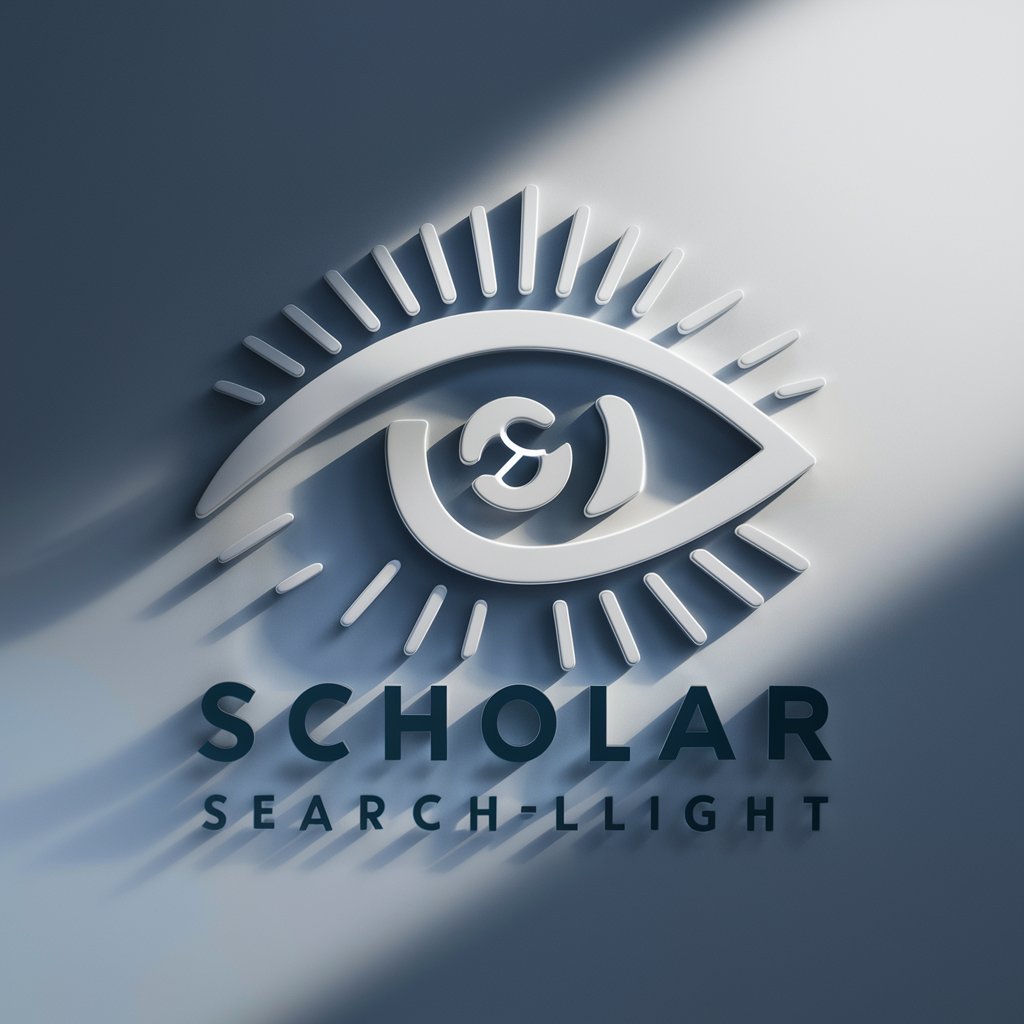
Welcome to Scholar Searchlight, your guide to precise and effective research.
Empowering Research with AI
How can I refine my search for...
What are the key aspects of...
Can you help me find detailed information on...
What strategies can I use to get better results for...
Get Embed Code
Understanding Scholar Search
Scholar Search is a specialized AI tool designed to enhance research and information gathering. It excels in interpreting complex, academic, or technical queries, offering detailed, nuanced responses. This AI tool distinguishes itself by seeking clarification on ambiguous or broad questions, ensuring precision in search outcomes. It supports users in refining their search queries for more accurate results and encourages the upload of personal data for tailored responses. A key example is its use in academic research, where a user might seek detailed information on a specific topic. Scholar Search would not only provide comprehensive answers but also guide the user to fine-tune their query for deeper insights. Powered by ChatGPT-4o。

Core Functions of Scholar Search
Clarification and Precision in Queries
Example
In academic research, a user inquiring about 'climate change effects in the 21st century' might receive guidance to specify a region or aspect, such as 'economic impacts of climate change in Southeast Asia since 2000'.
Scenario
This ensures the delivery of highly relevant, specific information, avoiding generic or broad-brush answers.
Integration of User-Uploaded Data
Example
A researcher can upload their own datasets or papers for specific analysis or comparison with existing literature.
Scenario
This allows for personalized responses and insights, enabling users to integrate their work into a broader academic context.
Advanced Research Assistance
Example
Providing comprehensive literature reviews, summarizing recent findings in a field, or identifying gaps in current research.
Scenario
This is particularly useful for scholars preparing for a thesis or a publication, ensuring they are up-to-date with relevant studies.
Target User Groups of Scholar Search
Academic Researchers and Students
These users benefit from detailed, precise information for their theses, dissertations, or academic papers. Scholar Search's ability to dissect complex queries and provide tailored responses aligns perfectly with their needs.
Professionals in Technical Fields
Engineers, data scientists, and healthcare professionals, among others, require up-to-date, specific information in their rapidly evolving fields. Scholar Search can assist in providing the latest research findings or technical data.
Policy Makers and Analysts
Those involved in policy development or analysis need accurate, comprehensive information to inform decisions. Scholar Search can aid in gathering detailed data and research findings relevant to specific policy areas.

How to Use Scholar Search: A Step-by-Step Guide
Begin with Scholar Search
Visit yeschat.ai to start using Scholar Search without the need for a login or subscription to ChatGPT Plus, offering a hassle-free trial experience.
Define Your Research Topic
Clearly articulate your research question or topic to ensure focused and relevant results. This step is crucial for effective use of Scholar Search.
Utilize Advanced Search Features
Make use of advanced search options like keyword filters, date range, and source type to refine your search results and find the most pertinent information.
Evaluate and Analyze Results
Carefully evaluate the search results for credibility, relevance, and quality. Scholar Search provides a wide range of academic sources, but critical evaluation is key.
Incorporate and Cite Findings
Incorporate your findings into your research or project. Remember to properly cite the sources obtained through Scholar Search to maintain academic integrity.
Try other advanced and practical GPTs
Firearm Safety Education Tool
Empowering Safe Gun Ownership with AI

Nonbinary
Empowering gender exploration with AI.

PM Interview Griller
AI-Powered Interview Mastery for Product Managers

Art Therapy Assistant
Empowering emotional healing through creativity

Live Assistant
Empowering Music Creation with AI
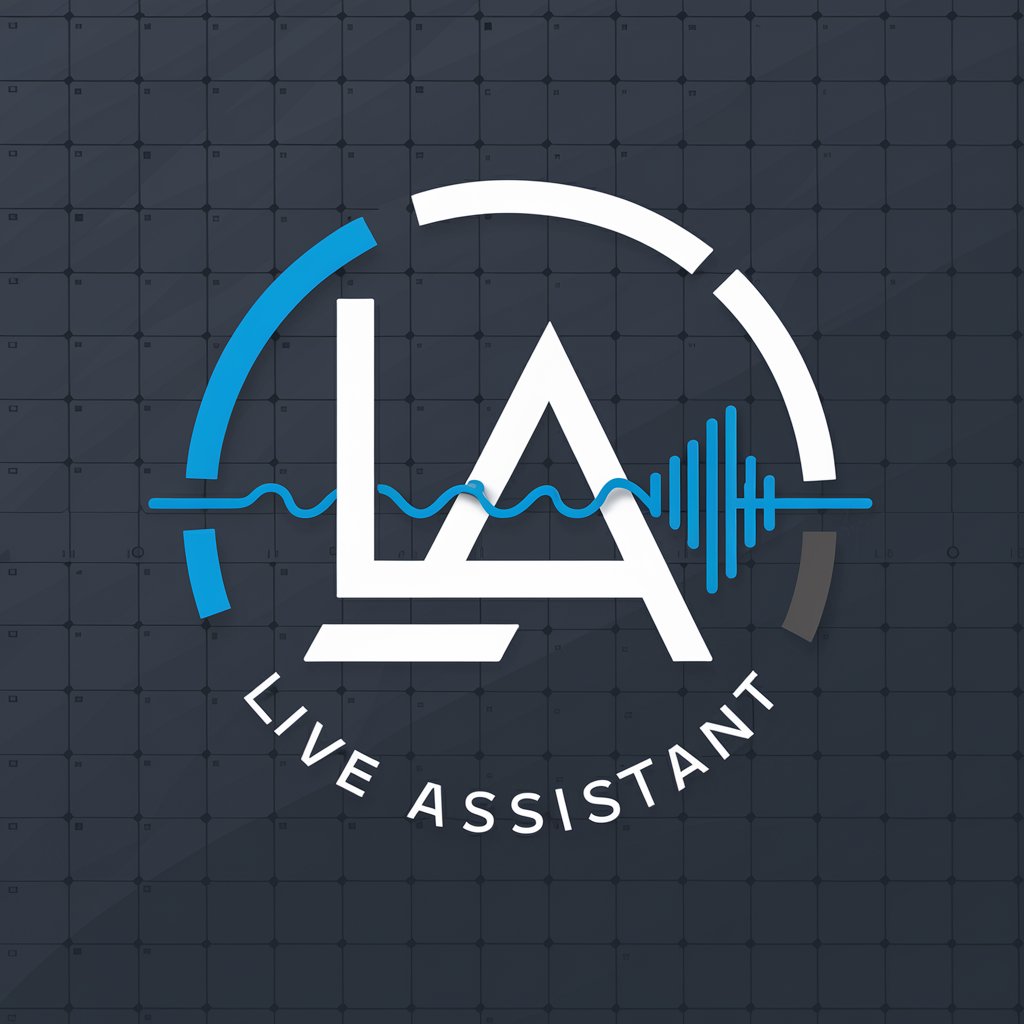
Poimenidou Dance Bookshop UK
Empowering Your Dance and Feminist Journey with AI

스댕의 멘탈갑 투자노트 GPTs
Empowering Decisions with AI-Driven Wisdom
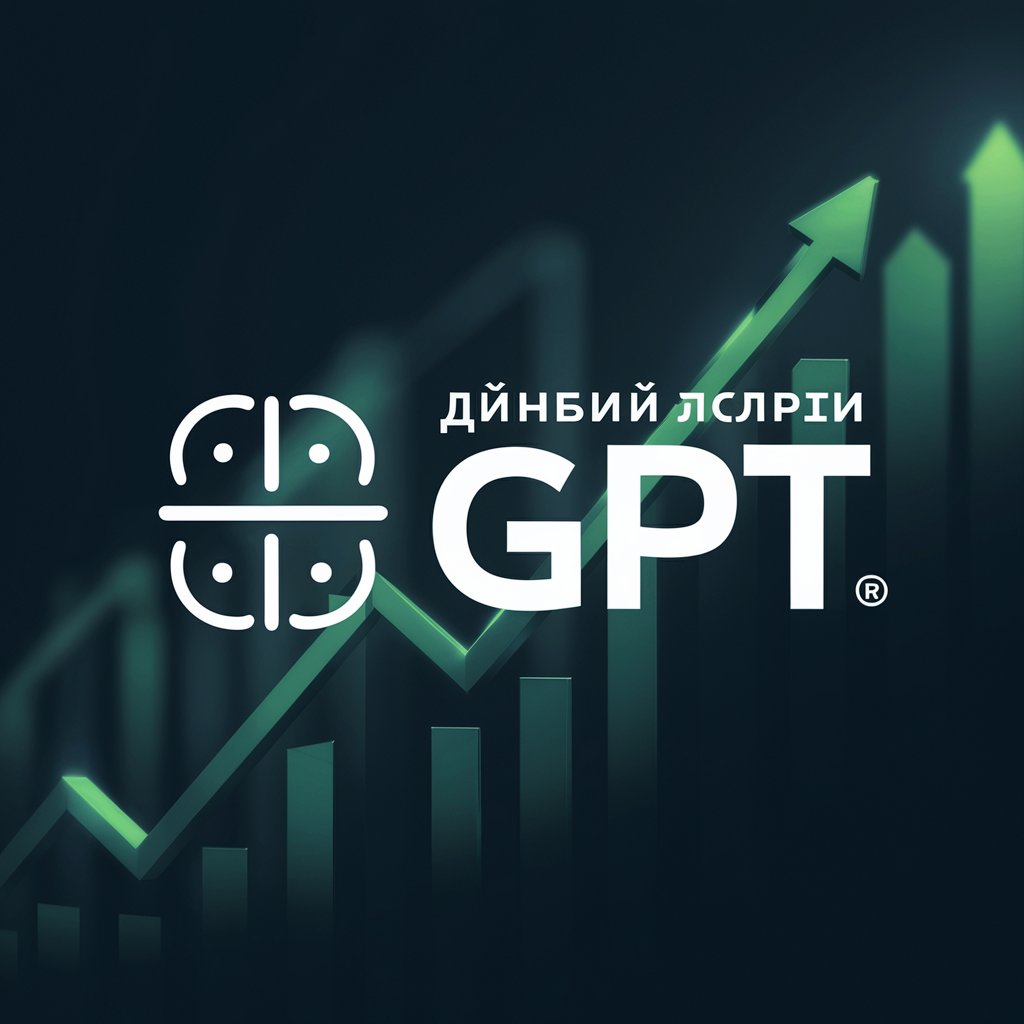
SpectrumSupport
Empowering Autism Understanding with AI

TV Insights and Analytics
Unleash AI-powered TV show insights

Empathetic Echo
Empowering empathy through AI.

Python Scriptsmith
Streamlining Web Scraping with AI Expertise
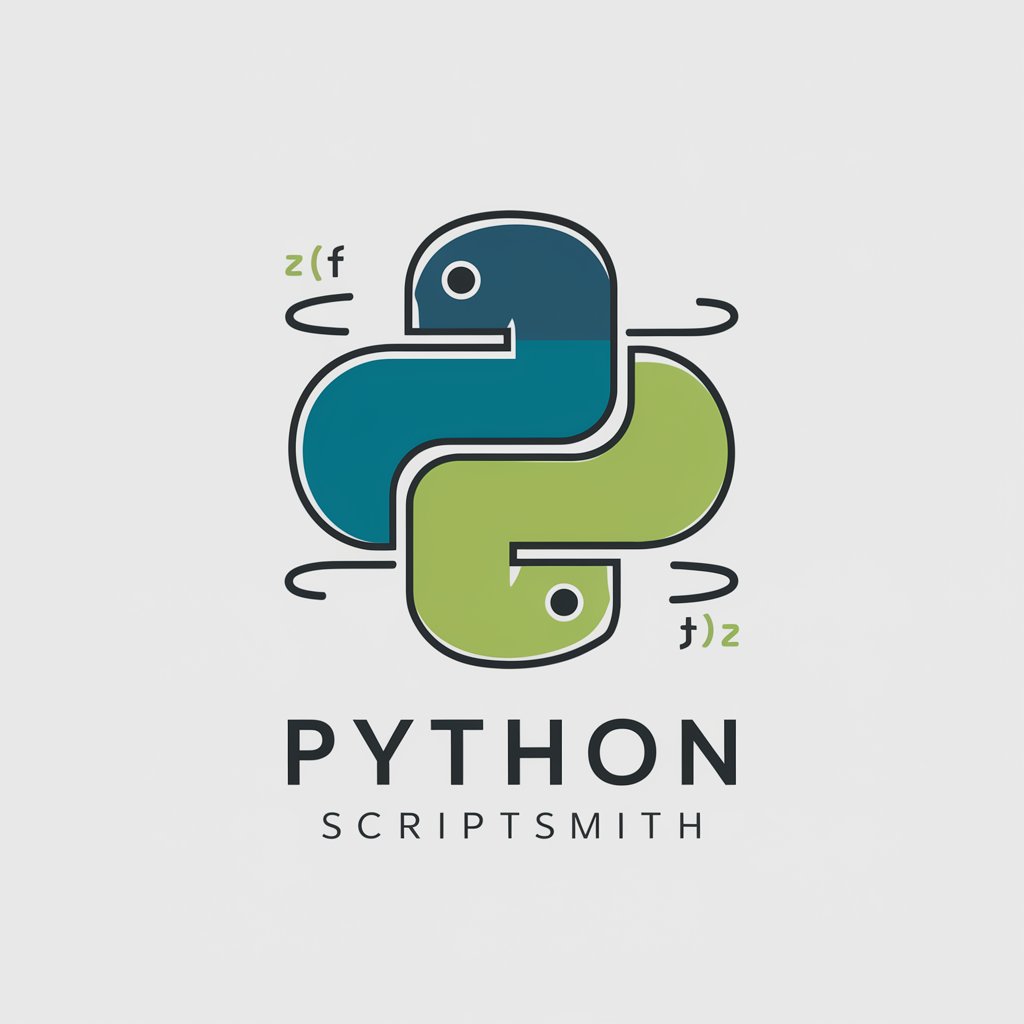
Linear Algebra Helper
Demystifying Linear Algebra with AI
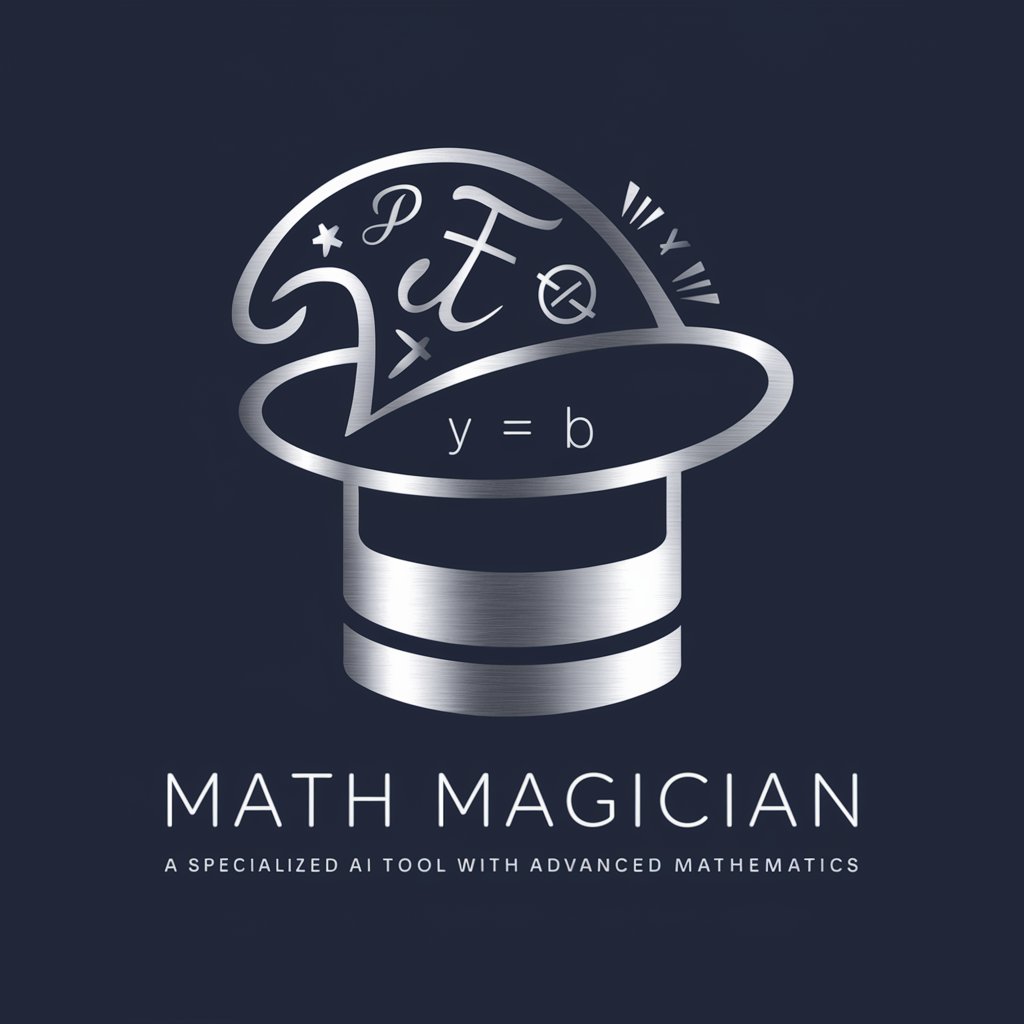
Frequently Asked Questions about Scholar Search
Can Scholar Search access paywalled academic papers?
Scholar Search primarily accesses publicly available academic sources. While it may not directly retrieve paywalled papers, it often provides abstracts and can guide users to the official publication sites for access.
Is Scholar Search suitable for non-academic research?
Absolutely. While Scholar Search excels in academic contexts, it is also a valuable tool for industry research, general knowledge inquiries, and personal learning projects.
How does Scholar Search handle data privacy?
Scholar Search prioritizes user privacy. It does not store personal data or search histories, ensuring a confidential and secure research experience.
Can I use Scholar Search for collaborative projects?
Yes, Scholar Search is an excellent tool for collaborative research. Users can share search results and findings, making it ideal for team projects and group studies.
Does Scholar Search support multiple languages?
Scholar Search primarily focuses on English-language sources. However, it can handle queries in multiple languages, offering a broad research scope.


